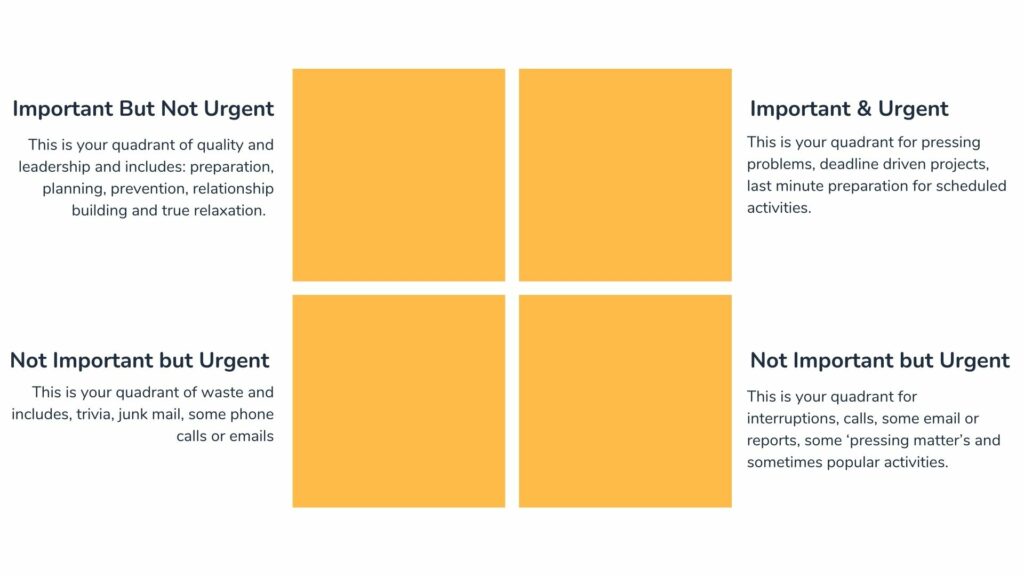
Hellomonday
It’s not uncommon for leaders to spend their days in a frenzy of activity but achieving very little because they are not concentrating on doing the most important things.
Assuming that today isn’t literally your first day in your new leadership role, think back to yesterday. What did you accomplish? More importantly, what was on your to-do list? What did you hope to get done? Were the tasks you worked on during the day the ones with the highest priority? Did you find yourself doing stuff at the last minute? How often did you find yourself dealing with unexpected interruptions from your team members? Did you end up having to do your ‘own work’ after hours just to keep on top of all the management stuff.
At the heart of managing your time as a leader is an important shift in focus. Concentrating on results (your own and your team’s)… not on being busy. It’s important to realise that procrastination is as tempting for any new leader as it is deadly. “I’ll get to it later” has led to the downfall of many new managers learning to spin all their new plates, since after too many “laters”, the work piles up so high that expectations and responsibilities seem insurmountable.
Don’t be lured into thinking that working harder (longer hours as a result of ‘managing by day’ and doing all your ‘other stuff’ by night) increases your productivity. Whilst this idea might work up to a point, beyond that it can become extremely detrimental to both your health (increased stress) and your effectiveness (making poorer leadership decisions).
We’re not here to share our thoughts on the downsides of multitasking or to give advice on how to avoid the plethora of distractions that can creep into all our workdays. Nor are we here to recommend productivity apps for you to track and understand exactly how and where you spend your time. And we’re certainly not going to suggest you even try to “do more with less”. After all, from a leader’s point of view, time management should be more about helping oneself and others make wise and often courageous or difficult decisions as opposed to doing more with less.
For a first-time manager in particular, it’s important to improve your productivity by (among other things) being proactive, not reactive; shifting your attitude and mindset from that of an employee to that of a leader; running efficient one-to-one and team meetings; learning to say ‘no’; being team oriented and not process driven; being ‘present’ for each individual team member; and above all focusing on the Time Management Matrix (opposite) and understanding what’s truly urgent, important, not urgent, or perhaps even not important at all.
Tasks or jobs can be divided according to their importance and urgency. Use a time management matrix to help prioritise the tasks that are really important for you to focus on first.

Use our time management matrix to prioritise your time.
Refining your approach to time management might involve some specific behavioural changes. But tweaking your habits, thoughts and actions around how and where you spend your time is all part of the leadership development process, right?